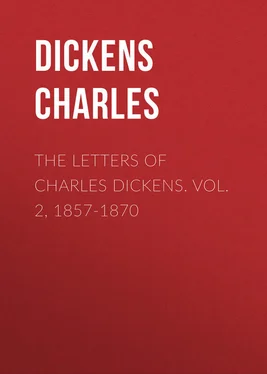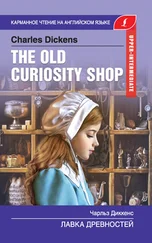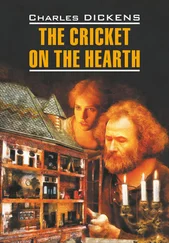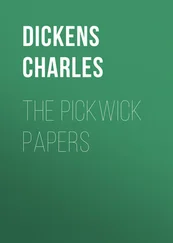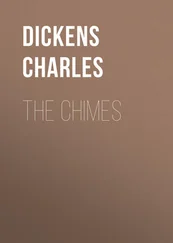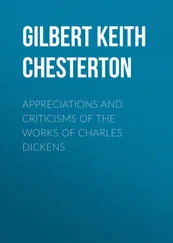Чарльз Диккенс - The Letters of Charles Dickens. Vol. 2, 1857-1870
Здесь есть возможность читать онлайн «Чарльз Диккенс - The Letters of Charles Dickens. Vol. 2, 1857-1870» — ознакомительный отрывок электронной книги совершенно бесплатно, а после прочтения отрывка купить полную версию. В некоторых случаях можно слушать аудио, скачать через торрент в формате fb2 и присутствует краткое содержание. Жанр: foreign_antique, foreign_prose, на английском языке. Описание произведения, (предисловие) а так же отзывы посетителей доступны на портале библиотеки ЛибКат.
- Название:The Letters of Charles Dickens. Vol. 2, 1857-1870
- Автор:
- Жанр:
- Год:неизвестен
- ISBN:нет данных
- Рейтинг книги:3 / 5. Голосов: 1
-
Избранное:Добавить в избранное
- Отзывы:
-
Ваша оценка:
- 60
- 1
- 2
- 3
- 4
- 5
The Letters of Charles Dickens. Vol. 2, 1857-1870: краткое содержание, описание и аннотация
Предлагаем к чтению аннотацию, описание, краткое содержание или предисловие (зависит от того, что написал сам автор книги «The Letters of Charles Dickens. Vol. 2, 1857-1870»). Если вы не нашли необходимую информацию о книге — напишите в комментариях, мы постараемся отыскать её.
The Letters of Charles Dickens. Vol. 2, 1857-1870 — читать онлайн ознакомительный отрывок
Ниже представлен текст книги, разбитый по страницам. Система сохранения места последней прочитанной страницы, позволяет с удобством читать онлайн бесплатно книгу «The Letters of Charles Dickens. Vol. 2, 1857-1870», без необходимости каждый раз заново искать на чём Вы остановились. Поставьте закладку, и сможете в любой момент перейти на страницу, на которой закончили чтение.
Интервал:
Закладка:
My dear Panizzi,
If you should feel no delicacy in mentioning, or should see no objection to mentioning, to Signor Poerio, or any of the wronged Neapolitan gentlemen to whom it is your happiness and honour to be a friend on their arrival in this country, an idea that has occurred to me, I should regard it as a great kindness in you if you would be my exponent. I think you will have no difficulty in believing that I would not, on any consideration, obtrude my name or projects upon any one of those noble souls, if there were any reason of the slightest kind against it. And if you see any such reason, I pray you instantly to banish my letter from your thoughts.
It seems to me probable that some narrative of their ten years' suffering will, somehow or other, sooner or later, be by some of them laid before the English people. The just interest and indignation alive here, will (I suppose) elicit it. False narratives and garbled stories will, in any case, of a certainty get about. If the true history of the matter is to be told, I have that sympathy with them and respect for them which would, all other considerations apart, render it unspeakably gratifying to me to be the means of its diffusion. What I desire to lay before them is simply this. If for my new successor to "Household Words" a narrative of their ten years' trial could be written, I would take any conceivable pains to have it rendered into English, and presented in the sincerest and best way to a very large and comprehensive audience. It should be published exactly as you might think best for them, and remunerated in any way that you might think generous and right. They want no mouthpiece and no introducer, but perhaps they might have no objection to be associated with an English writer, who is possibly not unknown to them by some general reputation, and who certainly would be animated by a strong public and private respect for their honour, spirit, and unmerited misfortunes. This is the whole matter; assuming that such a thing is to be done, I long for the privilege of helping to do it. These gentlemen might consider it an independent means of making money, and I should be delighted to pay the money.
In my absence from town, my friend and sub-editor, Mr. Wills (to whom I had expressed my feeling on the subject), has seen, I think, three of the gentlemen together. But as I hear, returning home to-night, that they are in your good hands, and as nobody can be a better judge than you of anything that concerns them, I at once decide to write to you and to take no other step whatever. Forgive me for the trouble I have occasioned you in the reading of this letter, and never think of it again if you think that by pursuing it you would cause them an instant's uneasiness.
Believe me, very faithfully yours.My dear Panizzi,
Let me thank you heartily for your kind and prompt letter. I am really and truly sensible of your friendliness.
I have not heard from Higgins, but of course I am ready to serve on the Committee.
Always faithfully yours.My dear Procter,
I think the songs are simply ADMIRABLE! and I have no doubt of this being a popular feature in "All the Year Round." I would not omit the sexton, and I would not omit the spinners and weavers; and I would omit the hack-writers, and (I think) the alderman; but I am not so clear about the chorister. The pastoral I a little doubt finding audience for; but I am not at all sure yet that my doubt is well founded.
Had I not better send them all to the printer, and let you have proofs kept by you for publishing? I shall not have to make up the first number of "All the Year Round" until early in April. I don't like to send the manuscript back, and I never do like to do so when I get anything that I know to be thoroughly, soundly, and unquestionably good. I am hard at work upon my story, and expect a magnificent start. With hearty thanks,
Ever yours affectionately.My dear Edmund,
1. I think that no one seeing the place can well doubt that my house at Gad's Hill is the place for the letter-box. The wall is accessible by all sorts and conditions of men, on the bold high road, and the house altogether is the great landmark of the whole neighbourhood. Captain Goldsmith's house is up a lane considerably off the high road; but he has a garden wall abutting on the road itself.
2. "The Pic-Nic Papers" were originally sold to Colburn, for the benefit of the widow of Mr. Macrone, of St. James's Square, publisher, deceased. Two volumes were contributed – of course gratuitously – by writers who had had transactions with Macrone. Mr. Colburn, wanting three volumes in all for trade purposes, added a third, consisting of an American reprint. Of that volume I didn't know, and don't know, anything. The other two I edited, gratuitously as aforesaid, and wrote the Lamplighter's story in. It was all done many years ago. There was a preface originally, delicately setting forth how the book came to be.
3. I suppose – to be, as Mr. Samuel Weller expresses it somewhere in "Pickwick," "ravin' mad with the consciousness o' willany." Under their advertisement in The Times to-day, you will see, without a word of comment, the shorthand writer's verbatim report of the judgment.
Ever faithfully.My dear Panizzi,
If you don't know, I think you should know that a number of letters are passing through the post-office, purporting to be addressed to the charitable by "Italian Exiles in London," asking for aid to raise a fund for a tribute to "London's Lord Mayor," in grateful recognition of the reception of the Neapolitan exiles. I know this to be the case, and have no doubt in my own mind that the whole thing is an imposture and a "do." The letters are signed "Gratitudine Italiana."
Ever faithfully yours.My dear Lotty,
This is merely a notice to you that I must positively insist on your getting well, strong, and into good spirits, with the least possible delay. Also, that I look forward to seeing you at Gad's Hill sometime in the summer, staying with the girls, and heartlessly putting down the Plorn. You know that there is no appeal from the Plorn's inimitable father. What he says must be done. Therefore I send you my love (which please take care of), and my commands (which please obey).
Ever your affectionate.My dear Mrs. Watson,
You surprise me by supposing that there is ever latent a defiant and roused expression in the undersigned lamb! Apart from this singular delusion of yours, and wholly unaccountable departure from your usual accuracy in all things, your satisfaction with the portrait is a great pleasure to me. It has received every conceivable pains at Frith's hands, and ought on his account to be good. It is a little too much (to my thinking) as if my next-door neighbour were my deadly foe, uninsured, and I had just received tidings of his house being afire; otherwise very good.
I cannot tell you how delighted we shall be if you would come to Gad's Hill. You should see some charming woods and a rare old castle, and you should have such a snug room looking over a Kentish prospect, with every facility in it for pondering on the beauties of its master's beard! Do come, but you positively must not come and go on the same day.
Читать дальшеИнтервал:
Закладка:
Похожие книги на «The Letters of Charles Dickens. Vol. 2, 1857-1870»
Представляем Вашему вниманию похожие книги на «The Letters of Charles Dickens. Vol. 2, 1857-1870» списком для выбора. Мы отобрали схожую по названию и смыслу литературу в надежде предоставить читателям больше вариантов отыскать новые, интересные, ещё непрочитанные произведения.
Обсуждение, отзывы о книге «The Letters of Charles Dickens. Vol. 2, 1857-1870» и просто собственные мнения читателей. Оставьте ваши комментарии, напишите, что Вы думаете о произведении, его смысле или главных героях. Укажите что конкретно понравилось, а что нет, и почему Вы так считаете.
